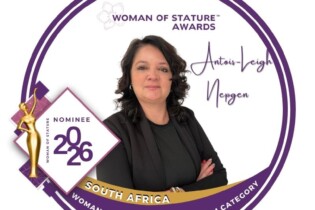As South Africa’s tourism sector continues to play a pivotal role in the nation’s economic growth, women are increasingly at the forefront of this success story. With the tourism industry projected to contribute 10.4% to the country’s GDP and create 2.23 million jobs by 2030, it is clear that this sector is not only vital to the economy but also to advancing women’s economic empowerment.
Sandra Kneubuhler, the Country Sales Director and District Director for South Africa at Radisson Hotel Group, is a passionate advocate for women’s leadership in tourism. Recognising the unique opportunities the industry offers, she urges more women to consider careers in tourism, especially in light of the ongoing unemployment challenges in the country.
Leading the Charge for Gender Parity
Sandra highlights that the tourism sector is making significant strides in achieving gender parity, particularly in comparison to other industries. “Women in hospitality hold 54% of low to middle management positions, which is higher than the national average across both private and public sectors,” she notes. However, Sandra is quick to point out that challenges remain, such as the wage gap, which, while narrower in tourism, still sees women earning 14.7% less than their male counterparts.
She also acknowledges the unique challenges faced by women in hospitality, particularly those related to irregular working hours. “The hospitality industry often demands unusual or anti-social hours, which disproportionately impacts women, especially mothers. These irregular work patterns can hinder career progression and work-life balance,” Sandra explains.
A Cultural Shift for Lasting Change
Sandra believes that achieving true gender equality in the tourism industry requires more than just policy changes; it demands a cultural shift. “Deep-rooted attitudes and biases continue to create barriers for women, from unequal pay to limited opportunities for advancement. As an industry, changing the way we speak, act, and conduct ourselves when it comes to supporting women is the most effective way to break the glass ceiling,” she asserts. “Fostering a culture of respect and inclusion empowers women to excel in their roles.”
Empowering Women at Radisson Hotel Group
Under Sandra’s leadership, the Radisson Hotel Group has been actively working to support more women in leadership roles, particularly in traditionally male-dominated areas. “We collaborate with our female employees to develop clear career paths with accelerated opportunities, ensuring equal representation in all our development programmes and training initiatives,” Sandra shares.
She emphasises that equitable representation in leadership is not only a matter of fairness but also a strategic advantage. “Research shows that diverse leadership teams enhance business performance, broaden the talent pool, improve decision-making, and boost employee satisfaction and retention. At Radisson, we believe in the ethos that ‘we are many minds, with one mindset,’ and this diversity is key to our commercial success.”
To further this mission, the Group has recently launched ‘Spotlight,’ a sponsorship programme designed to connect high-potential female talent with senior leaders for mentorship and advocacy. “These initiatives not only address historical disparities but also illuminate opportunities within the company and the broader industry. By building self-belief and providing the necessary support, we are setting up both women and the hospitality industry for success in the years to come,” Sandra affirms.
A Vision for an Inclusive Future
Sandra is committed to building a more inclusive tourism industry. “Tourism and hospitality are fundamentally about creating welcoming experiences for all. To fully realise its potential, the sector must continue to grow as a place where women thrive,” she says. Sandra believes that by prioritising gender equality, the industry can create a more dynamic, innovative, and sustainable tourism ecosystem.
She also highlights the broader impact of empowering women in tourism. “As the world becomes increasingly conscious of social and environmental impacts, a tourism industry that empowers women can serve as a powerful example of responsible and inclusive growth. By championing women’s roles, South Africa can position itself as a global leader in sustainable tourism.”
Sandra concludes with a call to action: “This is not only good for the country but good for business. A diverse team is essential for understanding and catering to the needs of our diverse guests. By cultivating an inclusive environment, we create a better workplace and a better world where everyone has the opportunity to succeed.”







